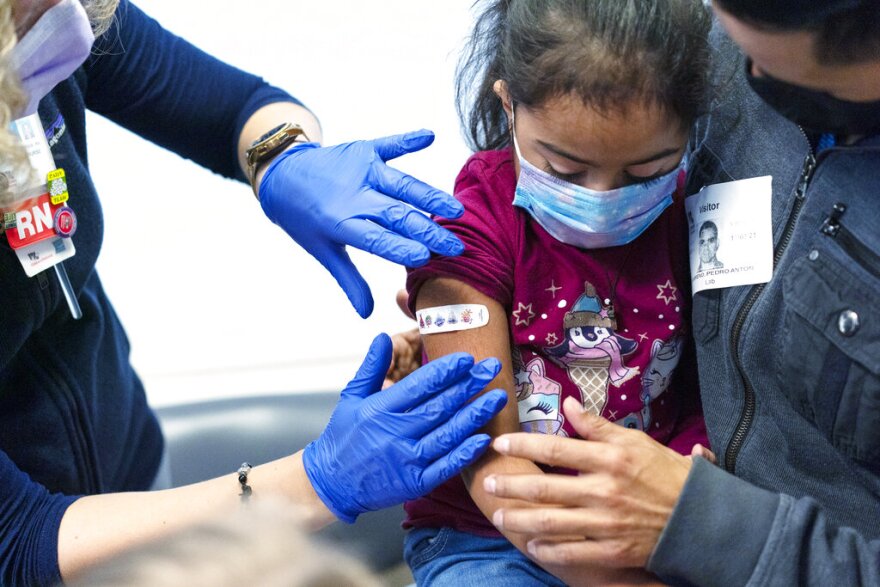There is some encouraging news on the horizon for parents anxiously waiting for a COVID vaccine for their children who are not yet five years old.
Dr. Angela Myers with Children's Mercy Hospital points to a Pfizer vaccine for the youngest children. Myers says because of what she has seen being reported, “I'm really optimistic that it could be earlier than what we had originally thought, which was March, April-ish.”
The concern now is that the vaccination rate for kids under five may be similar to that for fully vaccinated 5 to 11-year-olds, which stands at only 20%.
Myers reminds parents that the COVID vaccine is well-researched and that long-term negative effects are unlikely. "We know from other vaccine trials throughout history," Myers notes, “we don't see long-term effects from vaccines."
Virologist Gene Olinger agrees with the importance of inoculating children. He points to examples of kids who visited grandparents’ houses and unknowingly infected their family members, resulting in a grandparent’s death.
“These are things that you don’t want on your family’s conscience," Olinger says.
Myers notes that with the COVID vaccine, there’s a low chance that someone will get a severe case of COVID, but people should still take measures to reduce the chance of illness or death.
“As long as there are pockets of unvaccinated people around the globe,” Myers says, “then there will continue to be variants, the virus will continue to mutate.”
For those who think that COVID will become less dangerous to us much like common cold, Gene Olinger points to history noting that "it took almost 100 years for the last cold virus to adapt in humans to be a non-serious disease." As for a new variant, such as the one coming out of France, Olinger believes "we can't assume it will be less virulent."
Myers says that from an evolutionary standpoint, it's advantageous for a virus to become more contagious and less virulent, as that will allow it to continue to spread. She thinks, however, "that we will get to a point where we get an annual vaccine just like we do for influenza."
- Gene Olinger, science adviser for MRI Global
- Dr. Angela Myers, director, infectious diseases division, The Children’s Mercy Hospital








